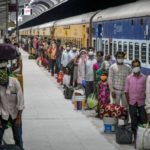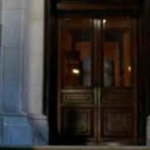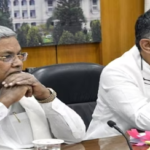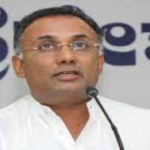Domestic Flights in India may start flying soon

The domestic flight operations are likely to resume within a week, says Union Civil Aviation Minister Hardeep Singh Puri. The commercial flight operations remain suspended since March 24 after the announcement of nationwide lockdown to contain the spread of coronavirus.
In an interview with Outlook’s Preetha Nair, the Union Minister also talks about the government’s massive plan to evacuate stranded Indians and the logistical challenges involved. He also says a decision on operating flights between green zones of the country will soon be taken.
You have hinted that the commercial flight operations are set to begin after May 15 in a calibrated way. Can you elaborate?
We are preparing to start domestic flight operations even before May 15. My effort will be to try and move in the direction of starting it very soon. I can’t put a date on it because when you are planning evacuation operations, you need the co-operation of the state governments. In order to open up domestic civil aviation, I need the domestic infrastructure in place.
Now that you have begun the evacuation of stranded Indians from abroad, will you operate flights domestically for people stranded in states?
Once we start domestic civil aviation, it cannot be called rescue. We are beginning commercial operation, and everyone will be able to travel.
Is there a chance of operating flights between green zones?
We have to take final decision on this. If you look at the map of India, operating between green zones is easy. But if you look at all the metropolitans, they are in red zone. We can’t leave them totally also. A decision will be taken on this in the next few days.
Four flights as part of ‘Vande Bharat Mission’ have landed in different airports across the country. What is the preparedness involved in a mission of this scale?
There is no way we would have carried out an operation on this scale if we were not sure that the state governments are on board. There are three separate and distinguishable components to this exercise. One is the identification of the people who want to come back. If you look at the figures, there are about nine million Indians working in the Gulf countries alone. If you look at the overall figures, taking into account the number of Indians in the United States and the United Kingdom, that’s a much larger number. We did an exercise initially – the Ministry of External Affairs primarily – through India’s missions abroad. They came to the conclusion that 1,90,0000 of our citizens in those countries find themselves in what could be regarded as being in a situation characterised by stress and they are stranded.
How did you work out the modalities to repatriate such huge numbers? How satisfied are you with the arrangements?
We got off to a good start and it’s just the beginning of the process. This is not an arrangement where the final details are cast in iron, as the expression goes…We will review it as we go along.
When we started out with the modalities, we were absolutely clear that 1,90,000, is a conservative number. If you have to bring all of them, it will become a major exercise. First, we had to prioritise among the people who wanted to come back. No matter what precautions you take, no matter how careful you are, international travel at the time of a pandemic is fraught with risks. Various measures such as disinfecting the aircraft, wearing masks and screening at the point of evacuation pre-boarding the flight were in place. Asymptomatic passengers are a risk factor. However, we want to minimise the risk of spreading the infection. When the passengers arrive at the respective airports, there have to be proper arrangements, as per protocol. The most important thing when you deal with large numbers is that the receiving state governments must have quarantine arrangements in place.
Will you ramp up the operation? How long will it take to evacuate 1,90,000 people?
In the first week, we are only looking at 14,800 people to be evacuated and 64 flights are in service. Evacuating 1,90,000 people will take time. I am hoping to do two things. Increase the numbers greatly and also slowly to open up civil aviation. We have already decided yesterday that we needed to add some flights from countries that were not included… We are examining the possibility of adding Australia in the list. We will improvise as we go along.
Many stranded Indians who have lost jobs in Gulf countries are not able to travel since it’s a paid evacuation. Will the government look into it?
We are always sympathetic to our countrymen no matter where they are. That’s why we are doing this great social service. You can’t run an airline operation on the basis of free tickets. Airlines is capital intensive industry. They take heavy loans and borrow money to buy aircraft. If you can’t run an airline, then you have to close it down. Air India cannot run on the basis of government subsidy. Who will carry out the evacuation after Air India is sold? May be the private airlines will carry it out. This is a paid service. Everybody should realise that you are taking the plane empty on one way and you are charging a reasonable amount while coming back. What else will we do? We are not charging exorbitant amount. Middle East countries are not taking Indians back. Lot of Indians abroad went on their own volition. They worked and made money, but on the other hand we have to consider the case of the poor migrants in India. We have to look at the totality of the picture. People who are stranded in the US are looked after by NGOs and well-placed individuals.
Will you be roping in private airlines for the rescue operation?
Some of the private airlines have sent their crew on leave without pay. There is an element of public service involved. We will be open to the idea if they are keen
What about the NRIs stuck in India?
We are sending people since yesterday (Thursday) and operations have started for UK, Singapore and selected destinations in the US. I want to point out few glitches here. Let me give you an example. In the flight which went to San Francisco last night, the American authorities did not want the students to come back. They took a simple line that the universities are closed and what they are going to do here.
Though we are making all efforts to bring Indians back, the countries in the Middle East are not taking back anyone other than their citizens… As far as the UK and the US are concerned, there is no problem.
Some states like Kerala flayed the Centre for bringing the expats without undertaking Covid-19 tests?
At the end of the day, you can insist on any number of prerequisites. But there is a risk. Passengers who are travelling should be fully aware that she/he is taking a risk. Based on our two days experience, I think we got off to a good start considering the little time we had to plan the operations. I have personally spoken to all stakeholders, the airport authorities, the state government, Home Ministry, MEA among others. The Interiew by Hardeep Puri was given to the Outlook










0 Comments